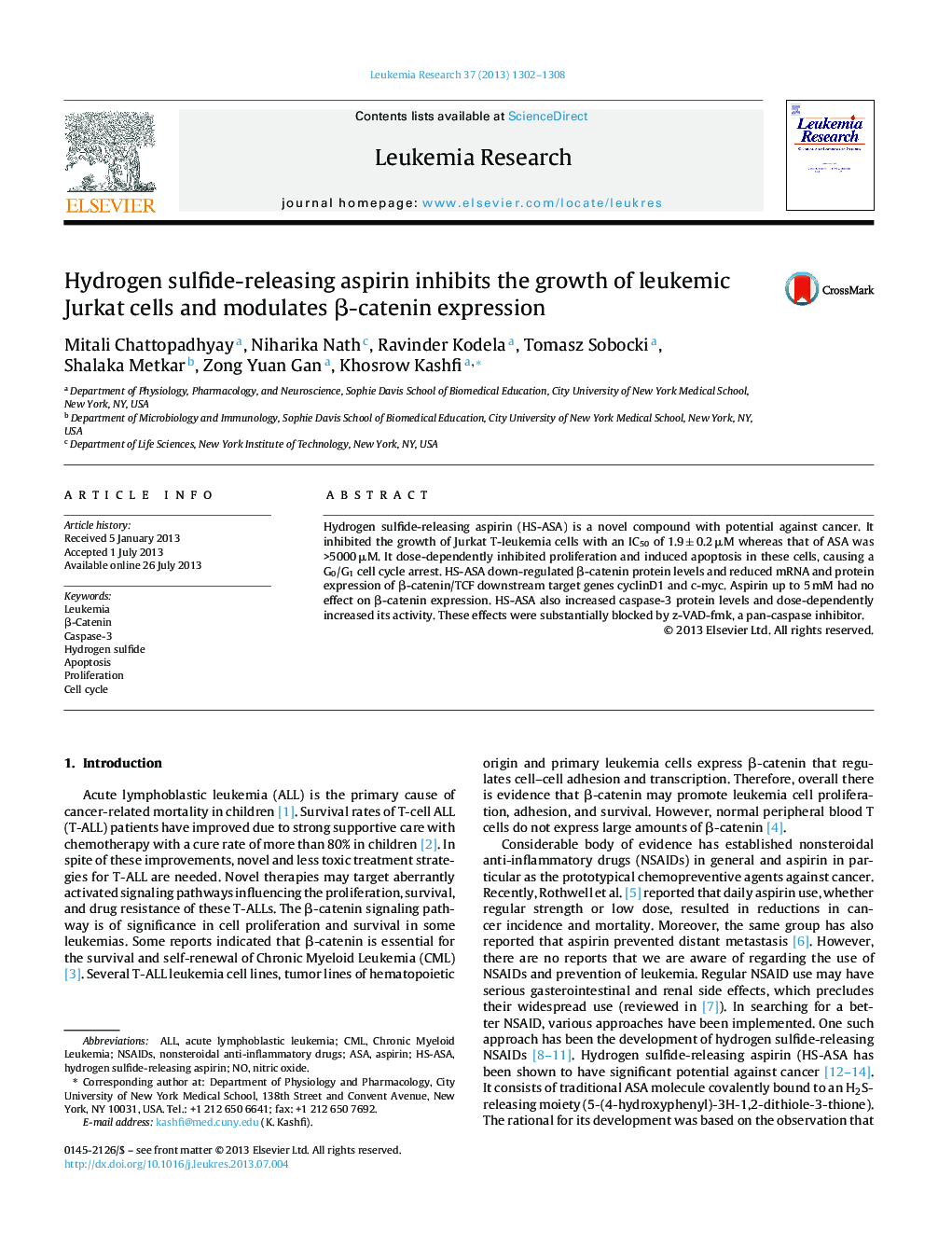| Article ID | Journal | Published Year | Pages | File Type |
|---|---|---|---|---|
| 10908796 | Leukemia Research | 2013 | 7 Pages |
Abstract
Hydrogen sulfide-releasing aspirin (HS-ASA) is a novel compound with potential against cancer. It inhibited the growth of Jurkat T-leukemia cells with an IC50 of 1.9 ± 0.2 μM whereas that of ASA was >5000 μM. It dose-dependently inhibited proliferation and induced apoptosis in these cells, causing a G0/G1 cell cycle arrest. HS-ASA down-regulated β-catenin protein levels and reduced mRNA and protein expression of β-catenin/TCF downstream target genes cyclinD1 and c-myc. Aspirin up to 5 mM had no effect on β-catenin expression. HS-ASA also increased caspase-3 protein levels and dose-dependently increased its activity. These effects were substantially blocked by z-VAD-fmk, a pan-caspase inhibitor.
Keywords
Related Topics
Life Sciences
Biochemistry, Genetics and Molecular Biology
Cancer Research
Authors
Mitali Chattopadhyay, Niharika Nath, Ravinder Kodela, Tomasz Sobocki, Shalaka Metkar, Zong Yuan Gan, Khosrow Kashfi,
